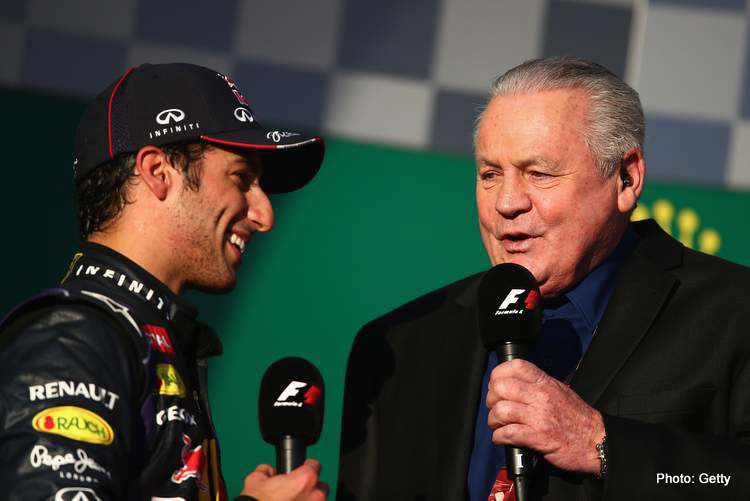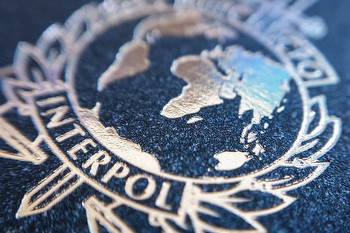Who are the best Australian Grand Prix F1 drivers?

The Australian Grand Prix is a highly prestigious motorsport event that attracts drivers, teams, and fans from all over the world and is one of the most exciting races in the Formula 1 calendar, held annually in Melbourne.
Over the years, numerous talented drivers have participated in this F1 event, showcasing their skills and earning recognition as some of the best in the world along them several Aussie drivers.
However, along with the thrill of the race comes the issue of gambling. Gambling has always been a part of sports, and the Grand Prix is no exception. Many fans enjoy placing bets on their favorite drivers or teams, making the race even more exciting. However, gambling can also have a negative impact on the sport, especially when it becomes illegal or unethical.
In this article, we will explore some of the best Australian Grand Prix drivers and their achievements, while also delving into the impact of gambling on the sport. We will also look at the current regulations and policies on gambling in the Grand Prix, highlighting the importance of maintaining fair play and ethical conduct in sports.
Top Australian Grand Prix F1 drivers
Australia has produced many talented drivers who have made a significant impact in the world of Grand Prix racing. Some of the most successful Australian Grand Prix drivers include:
Jack Brabham is widely considered one of the greatest Australian drivers of all time. He won the Formula One World Championship in 1959, 1960, and 1966, and he is the only driver to have won the championship in a car of his own construction.
Alan Jones is another iconic Australian driver who had a successful career in Grand Prix racing. He won the Formula One World Championship in 1980 and scored 12 Grand Prix victories during his career.
Mark Webber is a former Formula One driver who competed in the sport between 2002 and 2013. He achieved nine Grand Prix wins, including the 2010 British Grand Prix and the 2012 Monaco Grand Prix.
Daniel Ricciardo is a current Formula One reserve for Red Bull who has made a name for himself as one of the most exciting and talented drivers in the sport. He has won seven Grand Prix races in his career so far and has been on the podium 31 times.
These drivers have achieved incredible success in the Grand Prix circuit, and their achievements have not gone unnoticed. They have set numerous records and have become legends in the sport.
For example, Jack Brabham is the only driver to have won the championship in a car of his own construction, and Alan Jones was the last driver to win the championship for the Williams team until 1992.
Their success is not just limited to statistics and records, but also notable races. For instance, Daniel Ricciardo’s win at the 2014 Canadian Grand Prix is widely regarded as one of the best overtaking moves in the history of the sport. Similarly, Mark Webber’s victory at the 2010 British Grand Prix is considered one of his best races, as he battled his way from fifth on the grid to first place.
Impact of gambling on the sport
Gambling has become an integral part of sports, including Formula 1. While it adds excitement and entertainment value to the race, it can also have negative impacts on the sport. Illegal or unethical gambling practices can lead to corruption and compromise the integrity of the sport.
Gambling can have a significant impact on athletes as well. The pressure to perform well and win can be heightened when there is money on the line, which can lead to athletes/drivers making poor decisions or engaging in risky behavior. This pressure can also affect the mental health of the athletes and create additional stress and anxiety.
For fans, gambling can add to the thrill of the race, but it can also lead to addiction and financial problems. Some fans may place bets on Australian Grand Prix through online betting platforms, such as Australian gambling sites, which can increase the accessibility and convenience of gambling. However, it is important to gamble responsibly and within one’s means to avoid any negative consequences.
There have been notable controversies related to gambling in the Grand Prix. One example is the “Crashgate” scandal in 2008, where a driver intentionally crashed his car to help his teammate win the race. This was allegedly done as part of a plan involving illegal gambling practices. The scandal resulted in severe consequences for the involved parties and highlighted the potential consequences of unethical gambling practices in the sport.
To prevent such incidents, there are regulations and policies in place to maintain the integrity of the sport. These policies are designed to prevent illegal gambling practices and ensure fair play. It is important for fans, athletes, and everyone involved in the sport to uphold these regulations and prioritize ethical conduct. By doing so, the sport can continue to thrive and bring enjoyment to fans around the world.
Regulations and policies on gambling
To maintain the integrity of the sport and prevent illegal gambling practices, the Grand Prix and its governing bodies have implemented various regulations and policies. These policies are designed to ensure that the sport is fair, transparent, and free from corruption.
One such regulation is the “Code of Conduct” for athletes, drivers, officials, and other personnel involved in the sport. The Code of Conduct sets out guidelines for ethical conduct, including rules around gambling and betting. The Code prohibits athletes, drivers and officials from engaging in any gambling activities that could compromise the integrity of the sport.
In addition to the Code of Conduct, there are also regulations in place around the use of technology in the sport. For example, there are rules around the use of data analytics and other forms of technology to prevent any form of cheating or corruption.
The sport also has partnerships with reputable betting operators to ensure that any betting activities are conducted ethically and responsibly. These operators are required to adhere to strict regulations and policies, and they work closely with the governing bodies to prevent any illegal activities.
Furthermore, the governing bodies conduct regular investigations and audits to identify any potential violations of the regulations and policies related to gambling. They also work closely with law enforcement agencies to investigate any suspicious activities related to illegal gambling practices.
Overall, the regulations and policies related to gambling in the Grand Prix are designed to protect the integrity of the sport and prevent any unethical practices. It is important for everyone involved in the sport to adhere to these regulations and prioritize ethical conduct. By doing so, the sport can continue to thrive and bring enjoyment to fans around the world.
Overall
In conclusion, Australia has produced many successful athletes who have made a significant impact on the sport. From Mark Webber to Daniel Ricciardo, these drivers among those athletes have achieved great success and continue to inspire the next generation of Grand Prix drivers from that nation.
However, the impact of gambling on the sport cannot be ignored. While it can add excitement and entertainment value, it can also have negative consequences, including corruption and compromised integrity. Therefore, it is important for everyone involved in the sport, including drivers, officials, and fans, to prioritize ethical conduct and responsible gambling practices.
The Grand Prix and its governing bodies have implemented regulations and policies to prevent any illegal gambling practices and maintain the integrity of the sport. These policies are designed to ensure that the sport is fair, transparent, and free from corruption. It is essential that everyone involved in the sport adheres to these regulations and policies to ensure the continued success and enjoyment of the sport.




































